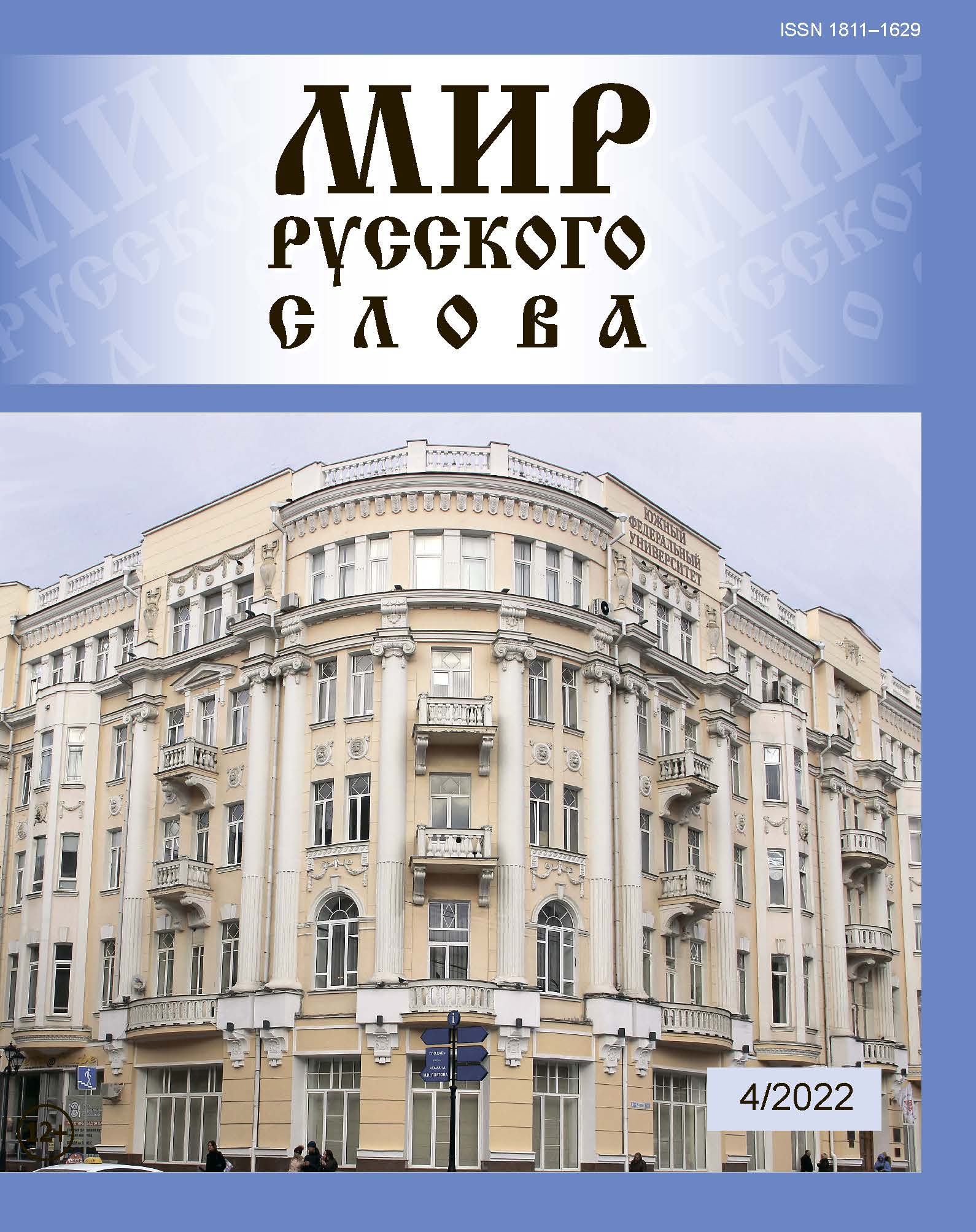Specificity of the category of time in the Sergei Shargunov’s autobiographical works
DOI:
https://doi.org/10.24412/1811-1629-2022-4-53-60Abstract
The article explores the correlation between fidelity to the documents and the principles of
artistic narration in Sergei Shargunov’s works. Fidelity to the documents as one of the principles
of the poetics of New Realism, to which the works of the writer belong, is embodied, among
other things, in autobiography not just as a method of plot construction (E. O. Novikova), but
also as a means of creating a “sign” story about oneself (A. I. Bogatyreva). The value of such a
story for the New Realists is obvious, since the humanistic idea of the value of the individual
is transmitted through it. However, Shargunov’s autobiographical prose in this series looks
somewhat different. The aim of the work is to determine the specifics of the relationship between personal and historical time as one of the reasons for the complexity
of the writer's autobiographical discourse. The material for the
study was the works by Shargunov “A Book without Photographs”
and the collection of stories “Our” (the story “Th e Last Summer of
the USSR” was analyzed in more detail). The author uses general
scholarly research methods, such as observations, generalizations,
interpretations, descriptions, as well as hermeneutic and
comparative historical methods. When analyzing the features
of the reconstruction of biographical time in “A Book without
Photographs”, it was determined that autobiography as a tool of
reflection is necessary for the hero not only to analyze the past,
but also to take root in the present, which is impossible outside the
historical and cultural context. Starting as a novel of education, the
book changes already towards the middle; social motives intensify,
journalistic intonations appear, personal, biographical time,
remaining the plot core of the work, merges with the historical
one. Shargunov needs an autobiographical plot in the stories of
the collection “Our” not to realize a memoir task, but to express
personal experience of comprehending or discovering something
significant for many people. In the story “The Last Summer of
the USSR”, this is helped by the conjugation of several temporal
layers, namely universal, personal, historical and transtemporal
(the Tolstoy line in the narrative). The obtained scholarly results
are the personal contribution of the author of the article to the
solution of the problem of determining the constitutive features of
Shargunov's autobiographical discourse.
Keywords:
New Realism, autobiography, category of time, novel about parenting, Sergei Shargunov
Downloads
Downloads
Published
How to Cite
Issue
Section
License
Articles of "The World of Russian Word" are open access distributed under the terms of the License Agreement with Saint Petersburg State University, which permits to the authors unrestricted distribution and self-archiving free of charge.




